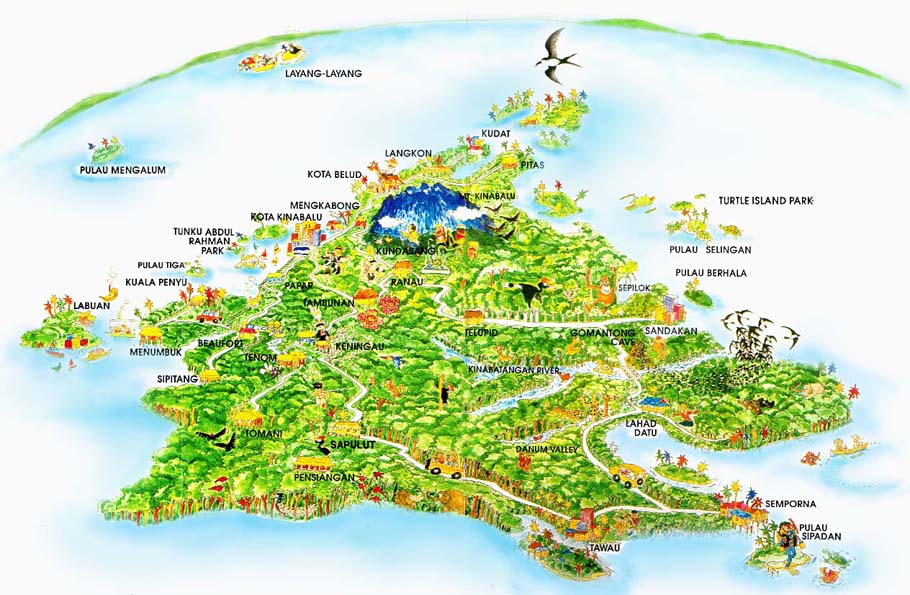Malaysia’s Sabah state to woo more Chinese tourists
KOTA KINABALU, Malaysia, Dec. 12 — Malaysia’s Sabah state is attracting more Chinese tourists who prefer places of natural beauty to crowded cities following the local government’s efforts to boost tourism.
The Sabah state, a part of East Malaysia on the Borneo Island, is famous for its beautiful beaches, tropical islands, rainforests and the Mount Kinabalu, one of the highest in Southeast Asia. It is often referred to as “Land Below the Wind” by seafarers in the past to describe lands south of the Typhoon belt.
It remained much unknown to Chinese tourists when Zhang Haixiang’s Shenzhen Junjie International Travel Service began to introduce it to the Chinese market.
“By that time, Hongkong and Shenzhen were the only two Chinese cities that had direct flights to Sabah,” he told Xinhua.
Things changed quickly. Chinese tourists arrival in Sabah has experienced double-digit growth in the past two years, according to Allen Chia, senior research manager of Sabah Tourism Board.
More than 160,000 Chinese tourists arrived in Sabah during the first 10 months of 2012, more than the total number of last year, Chia said.
Now, apart from the chartered flights from various Chinese cities to bring in tourists, local players like AirAsia have introduced commercial flights between Chinese cities and Kota Kinabalu, the capital city of Sabah.
Sabah, together with other famous tourism attractions in the region such as Bali, Indonesia and the Maldives, are becoming appealing to more Chinese tourists as many of them are turning to vacation-style travel after getting tired of sight-seeing tours, Zhang said.
Zhang’s company has brought 50 newly-wed couples from all across China for honey moon in Sabah, where the bride and the bridegroom choose to wear Malay costumes.
Sabah, the second largest state in Malaysia with a moderate population of 3 million, heavily relies on tourism as a major contributor to the economy. It didn’t take too long before the state government realized the opportunity from the Chinese market.
Chia said the local government is targeting a growing number of Chinese tourists. “We hope for the coming couple of years we will provide more attractive products for Chinese visitors.”
Source: NZweek




